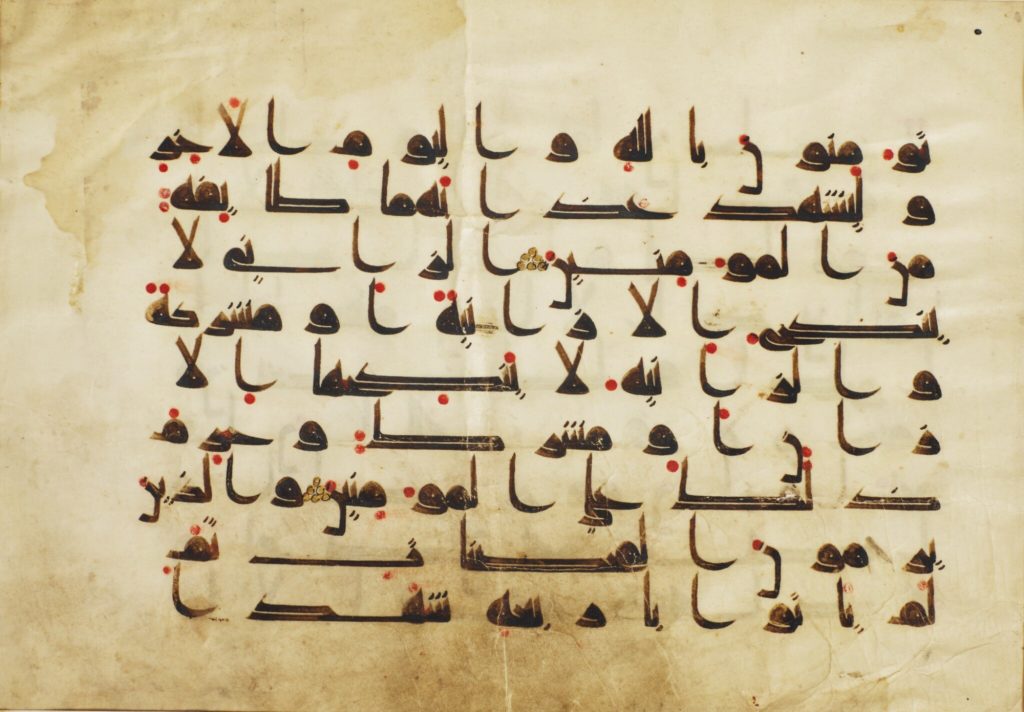
The shaykhs of Islam - Salafis, Wahhabis, the Muslim Brotherhood, preachers, and most of the Muslim community - think, or even believe, that Islam is valid for all times and places - meaning that ‘Islam is the solution.’ Many of them have written books in this regard, including Dr. Muḥammad ‘Ammāra with his work Is Islam is the solution? Why and how? in which he expounded ‘the Islamic solutions to all problems confronting intellectual life, the intellectual resurgence, the political system, social questions, women's liberation and human rights’.
BY YUSUF YUSUF
IN THIS BRIEF DISCUSSION, I will discuss some Islamic legal rulings, and then go on to read them in a rational, modernist way.
1 . Cutting off the thief’s hand: The following explanation is given by the scholars of Islamweb:
“The interpretation of this Sharīʻa ruling was as follows: the cutting off of the thief’s hand is to be a real amputation, with the hand separated from the body. For God Almighty said: As for the thief, both male and female, cut off their hands. It is the reward of their own deeds, an exemplary punishment from Allah. Allah is Mighty, Wise. [Qur’ān V (al-Mā’ida), 38] Muslim practice has been founded upon this verse right from the time of the Messenger of God to our present day. What you mentioned about the meaning of ‘cutting off’ in the verse being the neutralisation of the hand from criminal activity by means of imprisonment, this goes against the Sharia, and the express rule of God Almighty.” [1]
Is this really a divine legal ruling? And is God some bloodthirsty thug who would order the hand of a thief to be cut off? For one thing, the thief in essence is one of God’s servants and, on the other hand, is one not supposed to ask the thief as to whether he repented? Or was his hand to be cut off summarily, without an opportunity to repent? (But whoso repenteth after his wrongdoing and amendeth, lo! Allah will relent toward him. Lo! Allah is Forgiving, Merciful). [Qur’ān V (al-Mā’ida), 39]
Is God some bloodthirsty thug who would order the hand of a thief to be cut off?
The Sharīʻa rejects imprisonment as a punishment for theft. And on the other hand, would it not have been more logical it for the cutting of a hand to be issued to those who repeatedly stole without reason, for all the horror of such a punishment? An important thing to take into consideration is the social and psychological impact such an act would leave on the individual, especially if this were applied in our world today. Cutting off a thief’s hand is an inhumane method that is not suitable for the civilized standards of the twenty-first century world. One final point on this is that ‘Umar ibn al-Khaṭṭāb himself suspended the punishment of cutting off a thief’s hand in the year of Ramada 18 AH, a year of drought and famine. The suspension was logical, due to the difficult circumstances that Muslims were going through. Therefore Islam is not suitable for every time and place.
2 . Stoning: I will not go into the conditionalities of this Sharīʻa ruling, but just summarise it. This is that:
“the punishment for stoning for the married adulterer, as well as the married adulteress, is established by the Book, the Sunna, and the consensus of the Sunna and the Community, and it was not reported or known from any of the Companions or the Followers, or any of the People of the Sunna and the Community, that they repudiated it … The jurist Ibn Qudāma al-Ḥanbalī in has work Al-Mughnī (9/39) said: “This is the view of the generality of the people of learning among the Companions, the Ṭābiʽīn, and those that came after them.” And he went on to say: “The punishment of stoning was confirmed by the Messenger of God both in his words and actions in reports that are near-mutawātir[2], and there was a consensus on it among the Companions of the Messenger of God. Al-Bukhārī and Muslim in their Ṣaḥīḥ collections record Ibn ʽAbbās’s relation that ‘Umar ibn al-Khaṭṭāb ascended the pulpit and delivered the Friday sermon, saying: Allah I truth sent Muḥammad, and revealed to him the Book, and this included the Verse of the Stoning – we have read this, understood this and are fully aware of this. The Messenger of Gog carried out stoning, and we carried out stoning after him”.[3]
The verse of stoning is an outrageous and disgusting, inhumane verse, and it is still applied in many Islamic countries: Afghanistan, Pakistan, Iran, Saudi Arabia and others – and here we must ask are there not civil man-made laws that deal with this situation other than via the barbaric process of stoning? Is it possible, for example, for a Muslim man to stand in the centre of Paris or America and stone a woman? Is this act civilized, and what would be society’s reaction to such actions? This legal ruling is the biggest proof that the Qur’ānic text is a historical text, founded in a specific temporal circumstance more than 14 centuries ago, and is a text that cannot be applied later. In this context, one might note that Christ said to the Jews when they were stoning a woman for adultery:He that is without sin among you, let him first cast a stone at her. [Gospel of John 8:7].
This legal ruling is the biggest proof that the Qur’ānic text is a historical text
3 . Killing the apostate: The killing of the apostate is considered a ruling that must be deliberated at length, and can be summarized as follows:
“The matters which constitute apostasy are divided into four categories:
Apostasy in beliefs, such as associating others with Allah, denying Him, or denying an attribute which is proven to be one of His attributes, or by affirming that Allah has a son. Whoever believes that is an apostate and a disbeliever.
Apostasy in words, such as insulting Allah or the Messenger (peace and blessings of Allah be upon him).
Apostasy in actions, such as throwing the Qur’ān into a filthy place, because doing that shows disrespect towards the words of Allah, so it is a sign that one does not believe. Other such actions include prostrating to an idol or to the sun or moon.
Apostasy by omission, such as not doing any of the rituals of Islam, or turning away from following it altogether. What is the ruling on the apostate? If a Muslim apostatizes and meets the conditions of apostasy – i.e., he is of sound mind, an adult and does that of his own free will – then his blood may be shed with impunity. He is to be executed by the Muslim ruler or by his deputy – such as the judge, and he is not to be washed (after death, in preparation for burial), the funeral prayer is not to be offered for him and he is not to be buried with the Muslims.[4]
We should focus here on the issue of changing one’s belief – that is, converting from Islam to another faith – as detailed in the Apostasy in beliefs category. The question here is why the individual is to be killed when he changes his religion, given that the Qur’ānic text says: “There is no compulsion in religion”.[5] In confirmation of this approach, we notice that there is another Qur’ānic text that reinforces the same point:
And if your Lord had pleased, surely all those who are in the earth would have believed, all of them; will you then force men till they become believers? [6]
However, one is surprised to read the hadith of the Messenger of Islam that runs “Whoever changes his religion, kill him”. Here we are faced with two contradictory positions: the position of the Lord of the Qur’ān who permits the apostate to change his belief, and the position of Muḥammad who forbids the act of apostasy, and indeed orders the killing of the apostate! It is this contradiction in the Islamic heritage that has left the individual Muslim at a loss as to whom to follow: should he follow the Lord of the Qur’ān or the Messenger of the Qur’ān?

Suggested Reading
In conclusion, what I have mentioned here is just the tip of the iceberg of legal rulings which cannot be applied in our present time, but which even in their actual time were considered abhorrent. The major issue here is that the shaykhs of Islam glorify the divine wisdom of the Islamic law and thus consider that Islam as a belief is valid for all times and places, although this issue stands four square against the development of humans and society. What was valid then simply cannot be accepted now. Further, we see how, in some rulings, Muḥammad actually contradicts the Qur’ānic text, as can clearly be seen from the hadith “Whoever changes his religion, kill him” and others. This is because Muḥammad’s desire was focused on curtailing freedom of belief, because he saw the numerical situation of the first Muslims and was concerned not to allow the number of those whom Muḥammad convinced to convert to Islam to diminish. So the intention was deliberate, even though his hadiths intersected with the Qur’ānic text.
In the end, the shaykhs of Islam are still wallowing in the past, unaware that the past cannot form a template for the present. They are equally unaware that the present has to be established and framed on the basis of its social and cultural givens, so that template can be formed of the kind of future that societies are striving for.
[1] The text is Fatwā 311521 from the Islamweb site.
[2] See Glossary under ‘Ḥadīth.
[3] The text is taken from the Jam’īyyat Al-Ittiḥād al-Islāmī website.
[4] Fatwā 20327 from the website Islam – Questions and Answers .
[5] Qur’ān II (al-Baqara) 256.
[6] Qur’ān X (Yūnus) 99.

